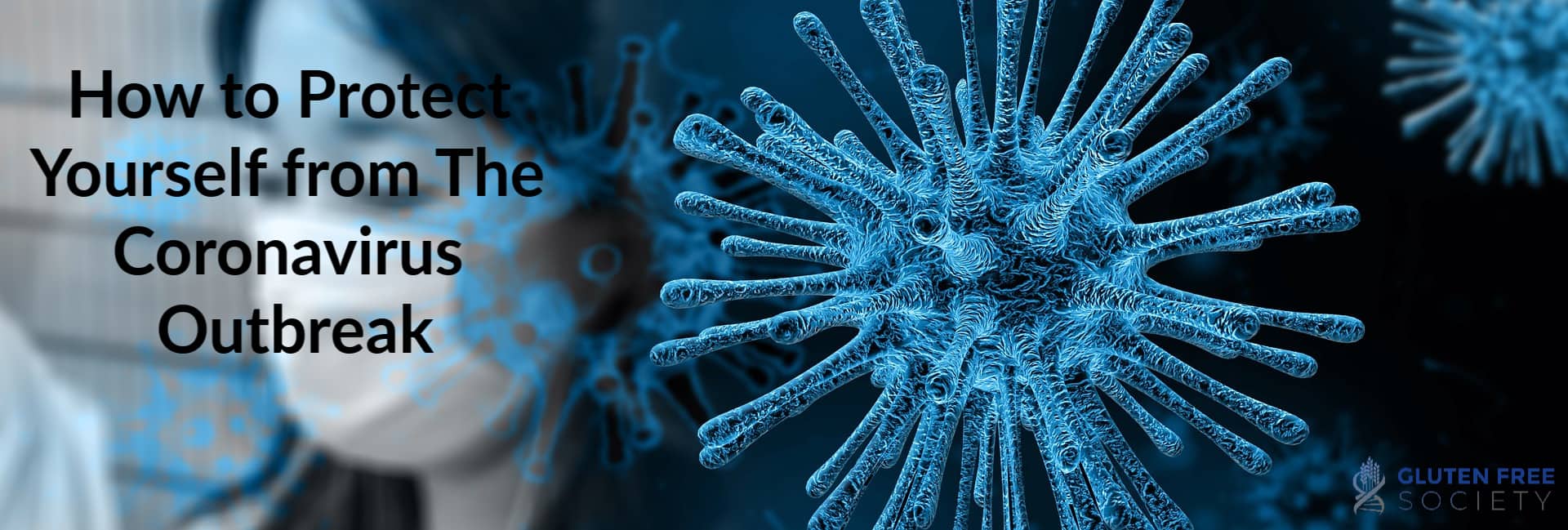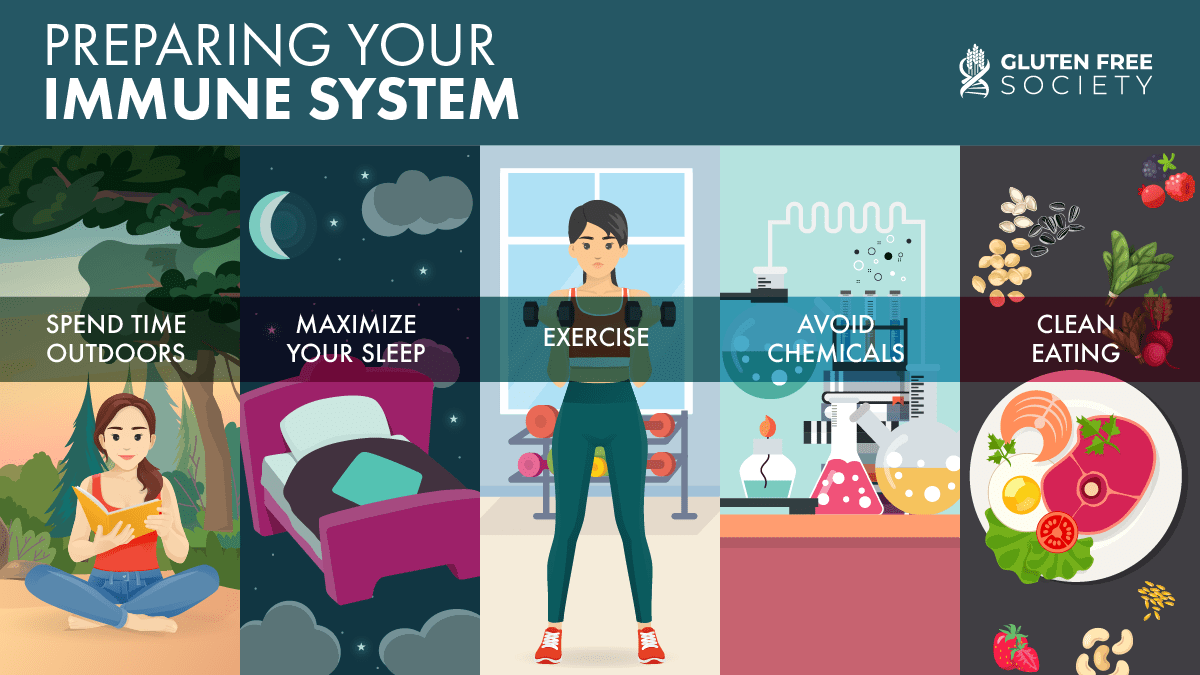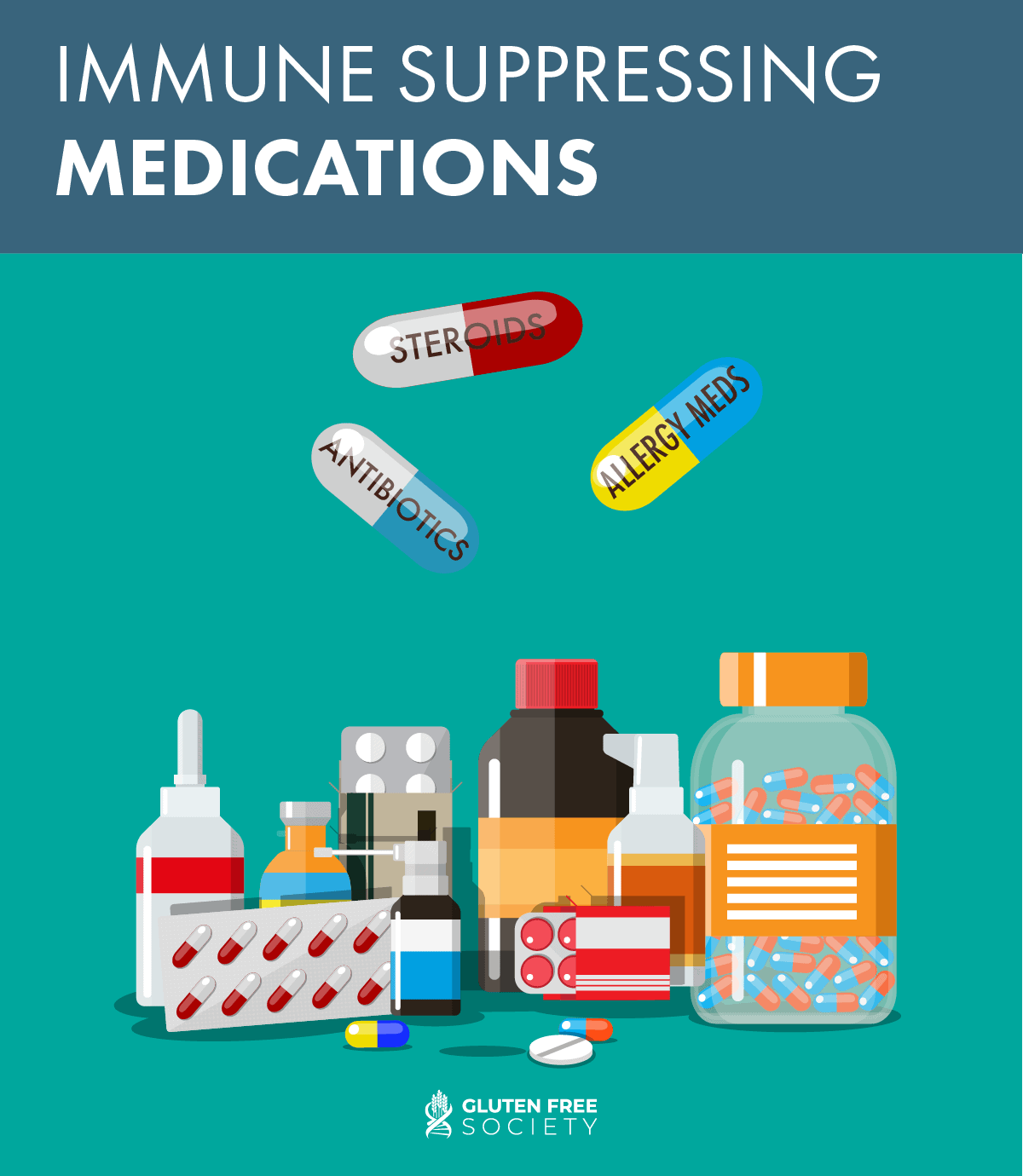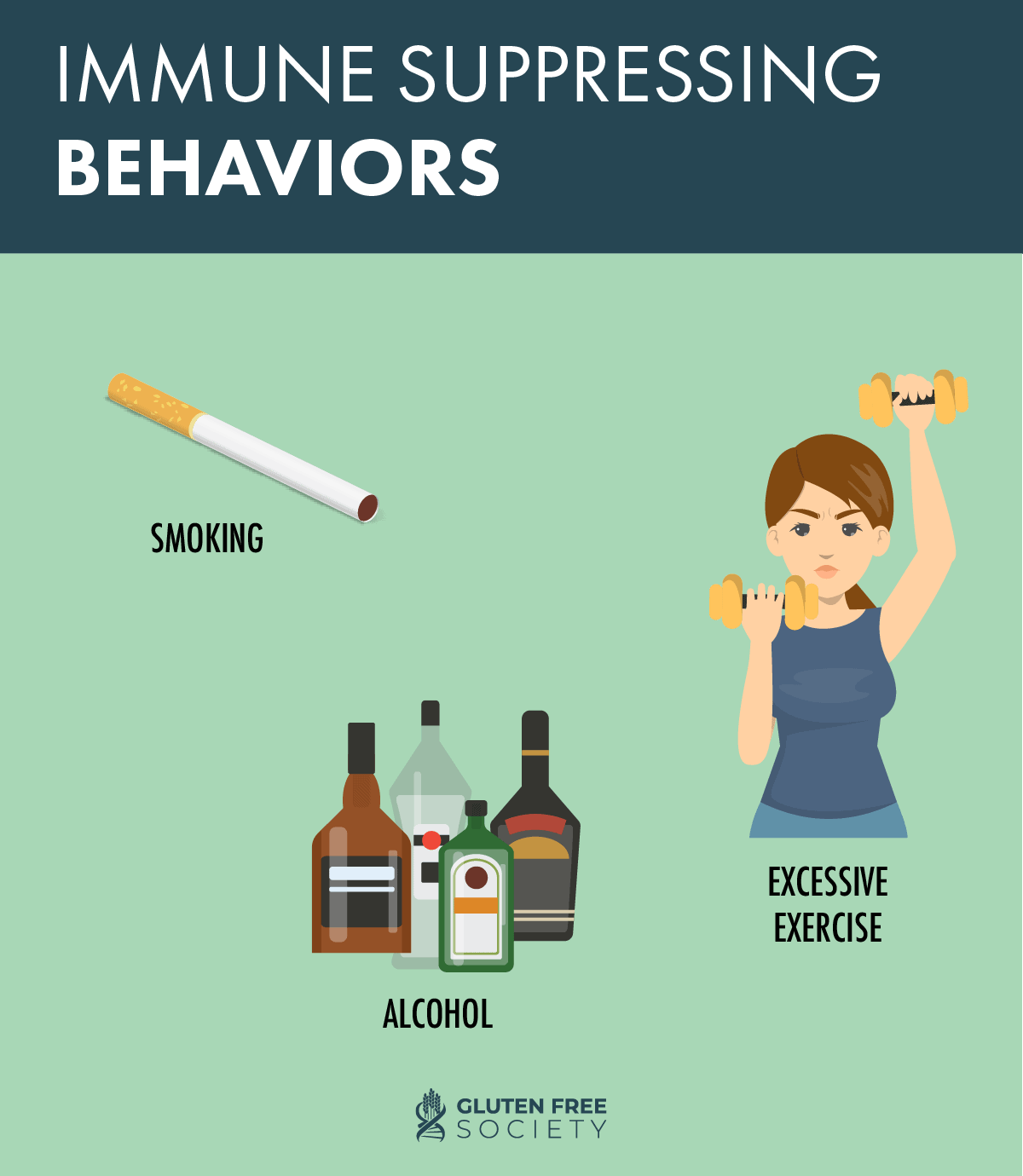new to the gluten free journey?
new to the gluten free journey?

 When winter comes and many of us are cooped up indoors, it’s no surprise that this is when illness seems to strike the hardest. While we know the flu can be quite rampant, recently we’ve seen the outbreak of another serious and sometimes deadly virus called the Coronavirus. Though these can be scary, there are several steps that can be taken to prevent catching a virus and even those that can help combat them if you do.
When winter comes and many of us are cooped up indoors, it’s no surprise that this is when illness seems to strike the hardest. While we know the flu can be quite rampant, recently we’ve seen the outbreak of another serious and sometimes deadly virus called the Coronavirus. Though these can be scary, there are several steps that can be taken to prevent catching a virus and even those that can help combat them if you do.
Contents
Toggle The body needs adequate rest to heal, repair and restore itself, and this includes restoration of the immune system. Sleep deprivation leads to immunosuppression and makes the body more susceptible to infection.
To get the most out of sleep, it’s important to shoot for at least eight hours of sleep per day. Specifically, being asleep, not just in bed, between the hours of 10 pm and 2 am can have an extremely positive impact on restoring the body.
The body needs adequate rest to heal, repair and restore itself, and this includes restoration of the immune system. Sleep deprivation leads to immunosuppression and makes the body more susceptible to infection.
To get the most out of sleep, it’s important to shoot for at least eight hours of sleep per day. Specifically, being asleep, not just in bed, between the hours of 10 pm and 2 am can have an extremely positive impact on restoring the body.
 Next to avoiding sugar, it’s important to simply eat real food. Stay away from the overly processed items found in the middle of most grocery stores.
It also helps to steer clear of restaurants. Not only are there poor food options, but there is an increased risk of spreading germs from those cooking or handling the food. Choosing to eat real food ultimately enhances the strength of the immune system.
Next to avoiding sugar, it’s important to simply eat real food. Stay away from the overly processed items found in the middle of most grocery stores.
It also helps to steer clear of restaurants. Not only are there poor food options, but there is an increased risk of spreading germs from those cooking or handling the food. Choosing to eat real food ultimately enhances the strength of the immune system.
 Some medications can actually suppress immune function, and increase the risk for developing an infection. These include:
Some medications can actually suppress immune function, and increase the risk for developing an infection. These include:
 Another way to protect the body from viral outbreaks is to consider harmful lifestyle behaviors. These include drinking alcohol and smoking. Alcohol, because it is a diuretic tends to dehydrate the body and rid of its important vitamins and minerals. On the other hand, smoking cigarettes and marijuana, vaping, and exposure to secondhand smoke all can cause immunosuppression.
Even exercising can be risky during outbreaks. Going to a gym that is filled with others sweating and breathing heavily can create an environment that leaves one highly exposed to germs and illness.
Another way to protect the body from viral outbreaks is to consider harmful lifestyle behaviors. These include drinking alcohol and smoking. Alcohol, because it is a diuretic tends to dehydrate the body and rid of its important vitamins and minerals. On the other hand, smoking cigarettes and marijuana, vaping, and exposure to secondhand smoke all can cause immunosuppression.
Even exercising can be risky during outbreaks. Going to a gym that is filled with others sweating and breathing heavily can create an environment that leaves one highly exposed to germs and illness.
 Prevention starts with good nutrition, and supplements can be an excellent way to support your body’s immune system. Nutrients with research backed immune support include:
Prevention starts with good nutrition, and supplements can be an excellent way to support your body’s immune system. Nutrients with research backed immune support include:
Stay up-to-date with the latest articles, tips, recipes and more.

*These statements have not been evaluated by the Food and Drug Administration. This product is not intended to diagnose, treat, cure or prevent any disease.
If you are pregnant, nursing, taking medication, or have a medical condition, consult your physician before using this product.
The entire contents of this website are based upon the opinions of Peter Osborne, unless otherwise noted. Individual articles are based upon the opinions of the respective author, who retains copyright as marked. The information on this website is not intended to replace a one-on-one relationship with a qualified health care professional and is not intended as medical advice. It is intended as a sharing of knowledge and information from the research and experience of Peter Osborne and his community. Peter Osborne encourages you to make your own health care decisions based upon your research and in partnership with a qualified health care professional.
3 Responses
Thank you, Dr. Osborn! I have been taking a higher dose of daily Vitamin D and C, lately; I also took Lysine and Echinacea, every now and then, but I with this information, I will start adding vitamin A, and the other supliment that you recommended.
Blessings and strength in all that you do!
Hi Peter,
Ironically I found your site due to the msm attempt to smear you for your recommendation of “lethal doses” of vitamin C and D, (lol!) The NY Times basically put you on the map.
I am a former nutritionist fighting multiple autoimmune disorders following a near-fatal infection with necrotizing fasciitis which lead to sepsis and ARDS. My immune system is greatly impacted – I spent 7 of 12 months last year sick with viruses or secondary infections.
I’m going to try ramping up my vitamin D and C. Can you please pass on your recommendation for daily maintenance doses of vitamin D?
Thanks so much!
Very good article doctor. Thank you very much for your insight in all of this